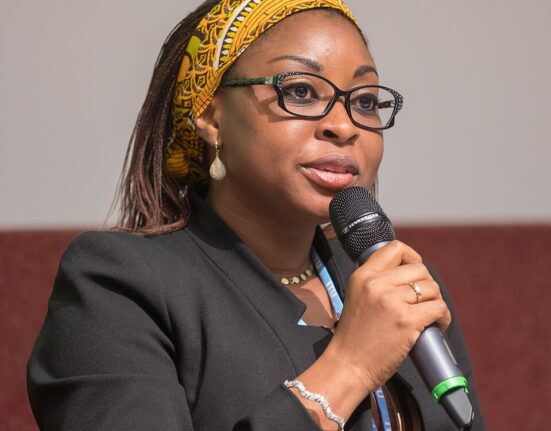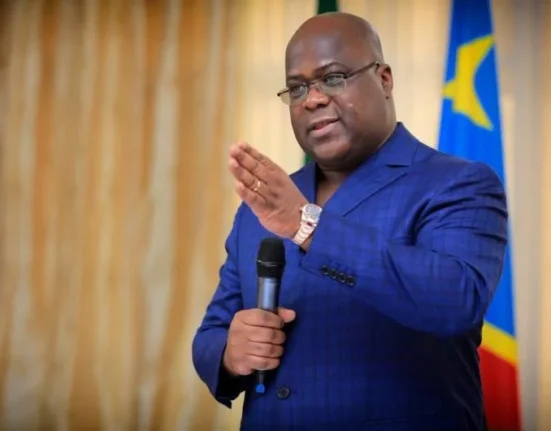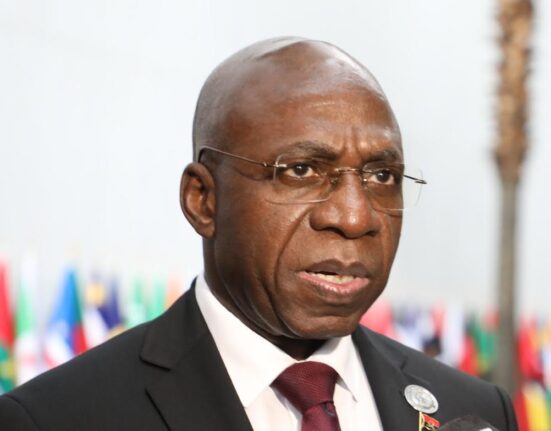The death sentence handed down in absentia to former president Joseph Kabila by a military tribunal in Kinshasa has become far more than a legal ruling. It has reignited a struggle over the balance of power in the Democratic Republic of Congo (DRC), reopened the wounds of a decades-long conflict, and raised fundamental questions about the nation’s political trajectory.

AfricaHeadline Reports Team
editorial@africaheadline.com
Kabila, who ruled from 2001 to 2019, was convicted on charges of treason, war crimes, murder, and collusion with the M23 rebel movement. The proceedings, held without the defendant’s participation and marred by disputes over fairness, set a rare precedent on the continent: a former head of state treated as a national enemy before the courts.
The Kabila case marks a watershed. For the first time, the DRC is breaking with the entrenched culture of impunity that has long shielded former presidents across Africa. Yet it leaves a fundamental question unresolved: is this justice or political revenge?
For President Félix Tshisekedi’s allies, the verdict consolidates state authority in a fractured country. For critics, it underscores how the judiciary has been weaponized as an extension of politics, in a system where the line between the courtroom and the palace grows increasingly blurred.
The ruling did not emerge in isolation. Since Tshisekedi took office in 2019, his initial alliance with Kabila has collapsed, replaced by open mistrust.
Kabila retained influence from the shadows through his party, the PPRD, and a network of allies in mining-rich provinces of eastern Congo. Today, the government portrays him as the architect of the M23’s resurgence. Parallel trials targeting PPRD leaders and asset seizures involving Kabila’s family reinforce the official narrative that the former president is the invisible hand behind renewed instability.
Kinshasa is polarized. The government insists the ruling responds to grave crimes. Opposition voices call it a politically motivated trial aimed at sidelining rivals ahead of the 2026 elections.
International observers note that while executions have been suspended since 2003, capital punishment remains on the books. Its use, even symbolically, raises fears of democratic backsliding. Accusations of treason against Kabila may strengthen Tshisekedi’s military legitimacy, but risk pushing the fragile state closer to the brink.
For the administration, the conviction underscores a broader agenda: consolidating central power and securing control over the resource-rich east. Branding Kabila a “traitor” serves dual purposes, sending a signal to the international community that its campaign against rebels is legitimate and warning domestic opponents that ties to the old regime will not be tolerated.
Kabila, for his part, denounced the trial as “having nothing to do with justice,” calling it an attempt to “rewrite Congo’s history by silencing those who resist.”
The verdict is reshaping alliances. Some of Kabila’s former supporters are distancing themselves, while others are drifting toward opposition coalitions. The political vacuum risks being filled by armed groups, deepening the violence in eastern Congo.
Regionally, the stakes are even higher. Rwanda’s alleged backing of the M23 turns Kabila’s trial into a matter of foreign policy, straining cross-border relations and testing the African Union’s capacity to mediate.
The ruling raises a practical dilemma: how to enforce the sentence without Kabila in custody. His whereabouts remain unknown, rendering the punishment more symbolic than material.
In the medium term, the trial could derail fragile peace talks and foreclose possibilities for reconciliation. Over the long term, it risks institutionalizing a dangerous precedent that in the DRC, every political transition ends in judicial persecution.
Timeline
From President to convicted traitor
-
2001 – Rise to power: Joseph Kabila takes office after the assassination of his father, Laurent-Désiré Kabila, promising peace after years of war.
-
2006 – Democratic elections: Wins the first relatively free vote in decades, though allegations of repression emerge.
-
2011 – Contested re-election: Fraud and violence taint his second victory.
-
2016 – The “third-term” crisis: Elections are delayed; Kabila is accused of seeking to cling to power. Protests are violently suppressed.
-
2018/2019 – Negotiated transition: Backs his ally Emmanuel Ramazani Shadary, who loses to Tshisekedi. A behind-the-scenes pact allows Kabila to retain influence through the PPRD and Parliament.
-
2020–2021 – Silent rupture: Tshisekedi dismantles the power-sharing deal, isolating Kabila’s camp.
-
2022 – M23 resurgence: Rebels seize territory in the east; rumors swirl of links between Kabila-aligned generals and insurgents.
-
August 2025 – Indictment: Military prosecutors formally charge Kabila with treason and war crimes, requesting the death penalty.
-
September 2025 – Conviction in absentia: The military tribunal sentences Kabila to death, shocking the nation and drawing accusations of political persecution.
The trial of Joseph Kabila does not close a chapter in Congolese history. It opens a new one. It redefines the boundaries of justice, exposes the fragility of institutions, and casts a long shadow over Congo’s future.
Whether the verdict represents the triumph of justice or of politics disguised as justice remains uncertain. What is clear is that Congo has entered uncharted territory: the fall of a former president could, ironically, decide the fate of an entire nation.








